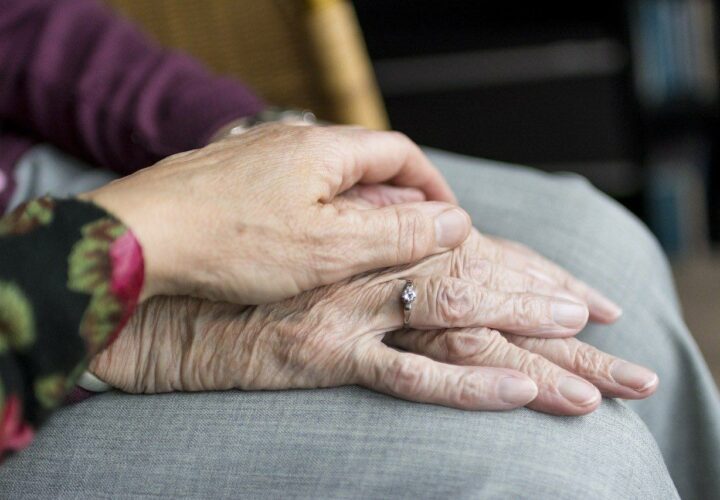Caregiving costs can reach the price of college tuition, and families are looking for ways around the debt. A new survey finds that sometimes, they may be turning to unvetted sources for help.
The cost of hiring a caregiver can differ from state to state and families often underestimate the costs of care which could be upwards of $750,000, with a base of $24/hour for a non-medical home aide or $51,600 per year for assisted living facilities (not applicable to private or semi-private rooms). Under these expensive circumstances, loved ones may turn to alternative options to take care of those living with dementia.
While costs may be high, family members may take on the role of a caregiver on their own, but as a result they may lose wages or hours worked, possibly lose their job and suffer from overall burnout.
A recent study from RAND found that nearly one third of Americans who have arranged care for an older loved one or someone living with dementia do not go through verified agencies for finding caregivers, coined the “gray market” by researchers.
The study surveyed 1,037 random members of the American Life Panel (an national online panel of adults) and asked whether or not they sought care for an older adult and where this caretaker was employed. Nearly 33 percent said they had arranged long-term care for themselves or a loved one, and of this group, 31 percent hired someone from the “gray market.” Gray market caregivers are defined by the RAND study as people who are unrelated to those receiving care, who do not work for a regulated caregiving agency, and who are potentially unvetted, unscreened, and may not have any formal training in caregiving.
Caregiving is often a full-time job, and seeking additional caregiving help — from a vetted, reliable party — is almost always necessary.
Alternatives to Unqualified Care
Sima Schoen, national caregiver resource specialist from the Family Caregivers Alliance (FCA), says creating a plan, including a formal agreement with hired care providers, can help.
The FCA provides resources, like a personal care agreement (a contract between the caregiver and who they are caring for, including hourly pay, hours to work per week and specific duties the caregiver has), to assist in the caregiving process.
“It enables the caregiver to be taking care of the recipient without fear of recrimination from other family members, and it is also useful if the care recipient needs to enter a facility or apply for other services that Medicaid might pay for,” Schoen told Being Patient regarding the agreement.
Aside from a personal care agreement, family caregivers must also take precautions for their own well-being to curb burnout and better assist who they are caring for. There are other steps to take, too: Schoen recommended that at the outset, family caregivers should evaluate the caliber of care they can provide, which includes being honest about the depth and amount of care they are capable of providing, and potentially seek out professional training for certain medical procedures, their own safety and the safety of the family member they are caring for.
Local Area Agencies on Aging and local Alzheimer’s Association chapters have resources available for families and friends to better care for someone living with cognitive decline, and the Alzheimer’s Association has a focused caregiving support page, including access to virtual and in-person support groups, daily care plan ideas and other FAQ based documents depending on the care someone is looking to provide.
Different states also provide different volunteer caregiving support systems, like Caring Kind in New York or the Center for Volunteer Caregiving in North Carolina.
While receiving a dementia diagnosis is difficult for any family member, providing the best possible care for a loved one is the first step towards enhancing their quality of life and if money is the problem, resources are available to help.
“I tell them to take as good care of themselves as possible and it’s almost laughable except it’s not — their health suffers a great deal,” Schoen said. “Some people call who are totally with the program — they love taking care of their family members, they’re not stressed, and they’re just doing it. But I try to find ways that they can, even if it’s little baby steps for them, to take care of themselves, and to get a certain amount of time for themselves every day — to just sit and breathe.”




And then there are many families with plenty of financial resources who put their loved one with Dementia in a facility while spending/transferring assets so that Medicaid picks up the tab. I’d like to see statistics on how many patients in Medicaid facilities have families that could afford to pick up at least some of the cost.
We had no choice but to put my mother into a Memory Care facility. This was largely due to the amount of unqualified aides sent to our home by agencies. It was incredible how incompetent, uncaring, and inattentive many of them were. And almost none had the personality that matched my mother. Even in her new facility, at best, half of that staff is qualified. We live in a metropolitan area with the cost of living is high, and the wage for these people is low. That is probably a big factor. And many of them don’t have English as a first language, so my mother had difficulty in understanding at least half of them. And with Alzheimer’s causing confusion to begin with, understanding and communicating is critical. In my humble opinion, there is a crisis in the memory care industry. So I would have to say that more than 50% of providers are unqualified. If somebody asked me, I would probably say that only 20% are actually qualified.
Finding good care for a loved one with dementia is easy to write on paper but extremely difficult in real life. We have probably gone through 15 aides since June. They quit, they no-show, and most of them don’t really care. I have yet to find a professional aide. We pay $35/hour but it wouldn’t make a difference if we paid $50/hour. Agencies have been worse and most of the nursing homes around our area are pretty much pathetic. My 91 year old precious Mom is full care 24/7. I will keep taking care of her until I drop.